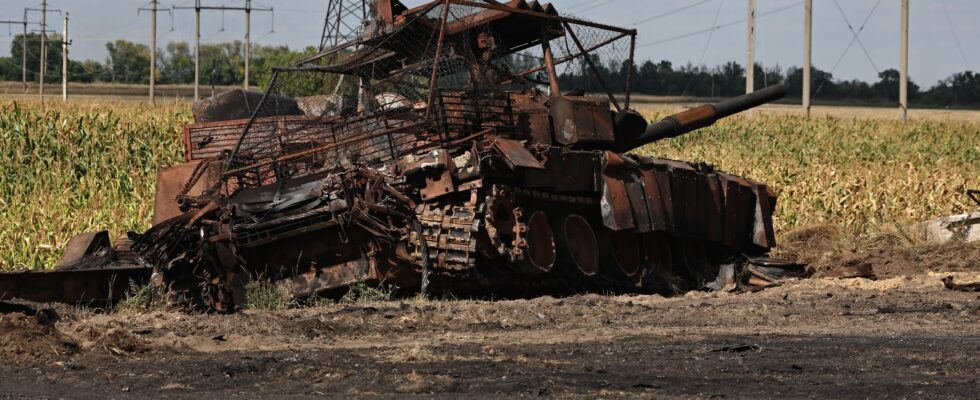On August 6, Ukraine achieved the impossible. Or at least, what had previously been considered impossible for Volodymyr Zelensky’s troops: an incursion into Russian territory. Soldiers, tanks and intelligence services challenged Moscow on its own soil. An operation unprecedented since World War II, leaving kyiv’s Western partners speechless. But was the Kremlin really caught off guard by this counteroffensive? Russian documents consulted by the British daily The Guardian reveal that Vladimir Putin’s soldiers had anticipated the incursion into the region and the attempted occupation of the town of Sudzha… and had even prepared for it.
A “possible breakthrough at the border”
Faced with the Ukrainian offensive in the Kursk region, the Russians had no choice but to flee. Quickly. To the point of not taking care to destroy confidential documents. Genuine oversight or deliberate action? One certainty: a few hours after the army left, this evidence was in the hands of the Ukrainians. Among them: orders distributed to units of the 488th Guards Motorized Rifle Regiment, as well as newspapers reporting events or concerns. All dated from the end of 2023 to the end of June, six weeks before Ukraine launched its incursion. While the British daily was unable to verify the authenticity of these documents, symbols of the official communication of the Russian army are indeed featured on them.
The “possible breakthrough at the state border” by Ukrainian armed groups. This is what a document dated January 4th, ordering the intensification of Russian training to counter any attack, evokes. More than a month later, on February 19th, the commanders of the units were warned of the Ukrainian strategy, and more precisely of “a rapid push in the Sumy region towards the Russian territory for nearly 80 kilometers, in order to establish a ‘corridor’ of four days”. And this, “before the arrival of the main units of the Ukrainian army in armored vehicles”.
As the days went by, kyiv’s plan for Moscow became clearer and the documents for Russian soldiers multiplied, until mid-June. On that date, a precise warning was sent: the Ukrainian army should soon be “in the direction of Yunakivka-Sudzha, with the aim of taking control of Sudzha”, a Russian town of 5,000 inhabitants, located 8 kilometers from the border. On August 7, drones struck the territory. The next day, Ukrainian forces seized Sudzha, confirming the Russian army’s prior information.
Poorly trained soldiers with low morale
But knowing about an operation is one thing, countering it is another. And according to the documents consulted by The GuardianRussia had little chance of coming out on top. The reason was the helplessness of Russian soldiers. In June, Moscow’s army complained that the units on the front “were only 60-70% full on average, and that they were mainly composed of poorly trained reservists.” Ranks weakened following the tragic, but all too ordinary, event of January 20. The day a conscript shot himself in the abdomen. In a handwritten report found by Ukrainian special forces, “the investigation into the incident determined that the cause of suicide and death was a nervous and psychological breakdown, caused by a prolonged depressive state due to his service in the Russian army.”
In order to avoid losing more soldiers, an instruction was given to unit commanders: identify fighters who “are not mentally ready to fulfill their duties or who tend to behave deviantly, and organize their reassignment and transfer to military medical institutions.” In addition to this instruction, an undated document explains that fighters must follow 5 to 10 minutes a day of political education. A measure designed to “maintain and elevate the moral, psychological and political state of the personnel.” Effective or not, the Moscow army attempted a counter-offensive on September 10 to reconquer the lost territories. In vain.
